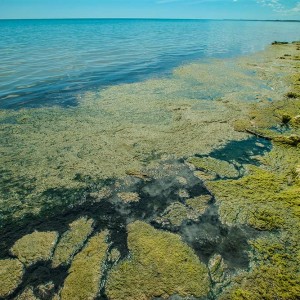Peter Gleick: The Human Right to Water (and Sanitation)
It has been a long time coming, but on July 26, 2010, the U.N, General Assembly: “Declares the right to safe and clean drinking water and sanitation as a human right that is essential for the full enjoyment of life and all human rights.”
Thank you.
Nearly 12 years ago, I wrote a peer-reviewed article entitled “The Human Right to Water,” published in the journal Water Policy. In that article, I argued that:
“Access to a basic water requirement is a fundamental human right implicitly and explicitly supported by international law, declarations and State practice. Governments, international aid agencies, non-governmental organizations, and local communities should work to provide all humans with a basic water requirement and to guarantee that water as a human right. By acknowledging a human right to water and expressing the willingness to meet this right for those currently deprived of it, the water community would have a useful tool for addressing one of the most fundamental failures of 20th century development.”
The world had previously acknowledged rights to health, well being, food, freedom from political persecution and much more. But not water and sanitation.
That changed on July 26, when 122 countries voted in favor of the General Assembly resolution to make the right to water explicit. No countries voted against it; 41 countries abstained, including the U.S., Canada, the U.K. and several other richer industrialized nations. Countries like Germany, Spain, China, Switzerland, France, Belgium, Norway voted in support.
The United States, which has typically been a world leader on protecting and enhancing political human rights, has always had a flawed position on “economic and social” human rights, including the human right to water — a position characterized by bad logic and a narrow and inconsistent interpretation of human rights law. Those flaws were evident again last week. The U.S. deputy representative to the UN’s Economic and Social Council, John Sammis, tried to justify the U.S. abstention, saying “This resolution describes a right to water and sanitation in a way that is not reflective of existing international law; as there is no “right to water and sanitation” in an international legal sense as described by this resolution.”
First of all, I think Sammis is simply wrong. As described in detail in my 1999 article, other scholarly works, and the groundbreaking 2002 U.N. General Comment, current international law clearly supports both an implicit and an explicit right to water. But second, the purpose of U.N. resolutions and interpretations is to expand formal interpretations of international law, as appropriate. There is certainly an ongoing debate about form and details of the “responsibilities” such a right confers, but as the U.N. Human Rights Council observed three years ago, “the open debate as to whether the human right to access safe drinking water is a stand-alone right or is derived from other human rights should not impair the recognition of access to safe drinking water as a human right.”
This latest declaration is not the end of the debate. There is still an ongoing discussion about the nature of the human right to water underway at the Human Rights Council in Geneva. But the endless bureaucratic shuffling of this topic from one council to another, from one committee to another, must stop. After nearly two decades of debate, these games should be seen for what they are: delaying tactics rather than clarifying activities. And the U.S. must get its U.N. representatives to actually read, and interpret, economic and social rights laws in a way that permits such an obvious human right to be clearly acknowledged, indeed, even embraced, as a tool to help address gross and inexcusable failures to meet basic needs for safe water and sanitation around the world.
To be more blunt, the opposite of saying there is a “human right to water” is to say there is no such right. Is it possible that this is the official position of the United States of America? That there is NO human right to safe and clean drinking water and sanitation? What kind of a position is that? And if the U.S. (and Canada, and Japan, and the other abstainers) believe there is a human right to water, but are concerned about working out the details on responsibilities and duties, they should say “We accept that there is a human right to safe drinking water and sanitation. We’re happy to say so, and work out the fine details later.” I’ve held my breath for over a decade waiting for the U.S. to say this. I’d rather not hold it much longer.
— Peter Gleick







Leave a Reply
Want to join the discussion?Feel free to contribute!